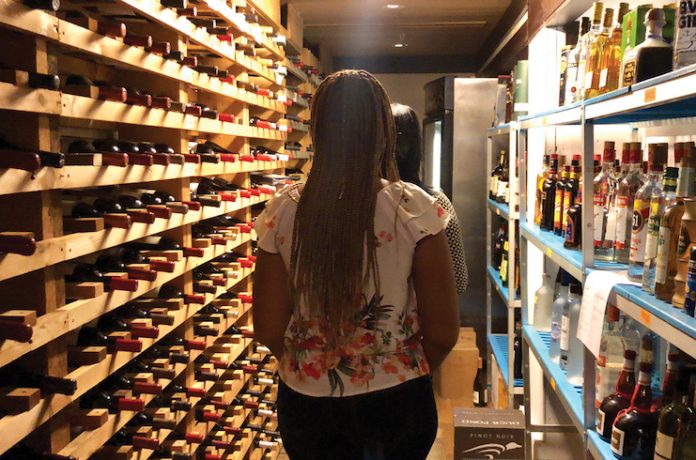
A worldwide program that has thus far trained workers primarily from outside the United States to serve the hospitality industry was actually born here. As Saira Hospitality Founder and CEO Harsha L’Acqua told LODGING, her nonprofit that partners with hotels to create pop-up schools to train local communities for a career in hospitality grew out of her winning entrepreneurship competition entry when she was a graduate student at the Cornell Hotel School.
This concept then went from being a pilot funded by A Place Called Home in downtown Los Angeles in 2015 to a series of overseas pop-up schools that ranged in geographies from Mexico to the Caribbean and Africa. According to L’Acqua, the program enables international companies—including those within the United States—to extend a hand to local communities surrounding their properties to fulfill its mission to provide opportunity for people and labor for the hotels. Yet, even without the benefits of the labor itself, she maintained, there are other reasons for U.S. companies to support the effort, which is typically funded by the hotel partner or partners from a combination of marketing, corporate social responsibility (CSR), and human resource budgets.
Among these benefits are the tax incentives L’Acqua described: “Our status as a 501c3 means that we are registered with the IRS to receive tax-deductible contributions from our sponsors, which enables them to support a worthy cause whilst reducing their taxable income at the same time. These deductions can be used to reduce federal income tax liability, as well as state income tax liability.”
She added that sponsorship offers the opportunity for companies to “contribute to their environmental, social, and governance (ESG) and CSR responsibilities in a measurable and impactful way at a time when making an impact, not only for the well-being of our planet, but also the development of our local communities, is of the utmost importance.”
Above all, she said, is the truly charitable aspect of sponsorship: “Most importantly, sponsors know that they are helping change the lives of our students, most of whom have been unemployed for 12 months or more and have various barriers to employment.”
Although the programs created after that pilot in Los Angeles in 2015 were implemented outside the United States, L’Acqua said there are now U.S.-based partnerships underway.
As an example, she referred to the 2023 partnership between Saira and the Lebron James Family Foundation (LJFF) and Graduate Hotels, which focuses on retail and mixed-use versus typical hotel offerings, “an exciting departure from Saira’s typical partners.” For that, the pop-up was a training program for the soon-to-open “House Three Thirty” (H330), a mixed-use hospitality venue owned and operated by LJFF in James’ hometown of Akron, Ohio. There, she noted, “I Promise” students were trained in various departments, from F&B and events, to working in the LJFF retail store and Lebron James Museum. L’Acqua mentioned, too, the “strategic partnership” forged this year in the United States with Mews—a property management system and broader innovative hospitality technology company—to develop five pop-ups over the next 18 months, including one in New York City. “This partnership will see Saira enter New York for the first time, to help bring our global impact to our first major U.S. city.”
Both these programs differ from those previously created, but, as L’Acqua explained, “Our programs are designed in different ways depending on where we’re working and the model we’re deploying.” Although they vary in length from two to 10 weeks—with four weeks being “the ideal length of time”—all, she said, follow a six-step process that spans content development, recruitment, and training and involve working closely with the partner “to understand their requirements and tweak our curriculum to ensure that we’re preparing these students for their future inside that property.”
Candidates for the opportunity to receive the training range in age from 16-60 and are selected via a four-step application process during which they are interviewed in person, online, in group settings, and through video over a two-month period. This is designed “to ensure only the students with the most potential and the greatest need for this opportunity are accepted to a Saira pop-up school,” L’Acqua noted. In addition to wanting and needing the opportunity, they should possess the “hospitality gene,” which she described as “an inherent kindness and desire to serve that will fit in well with our program and our partner hotel culture.”
This training, L’Acqua stated, is free of charge for the students or offered at a minimal cost or deposit. Work opportunity tax credits can also be explored, offering the hotel employer between $1,200 and $9,600 per employee hired from certain demographics.
At the end of the training program, L’Acqua suggested that “partner hotels have a pool of well-trained, local talent to hire from.” The overarching objective of the program? “Our goal is to create dedicated, engaged workforces, improved community diplomacy, and significantly reduced staff turnover for hotels, while providing life-changing employment opportunities for those who need it most,” she said.











